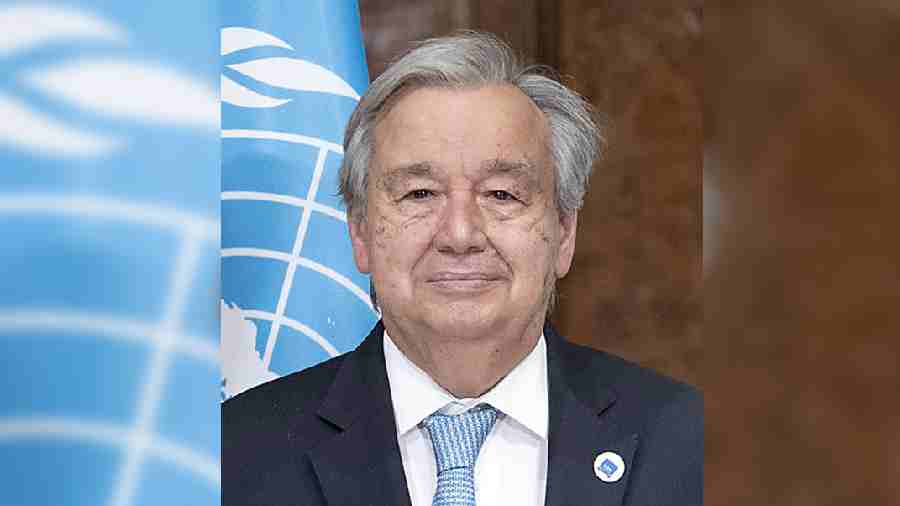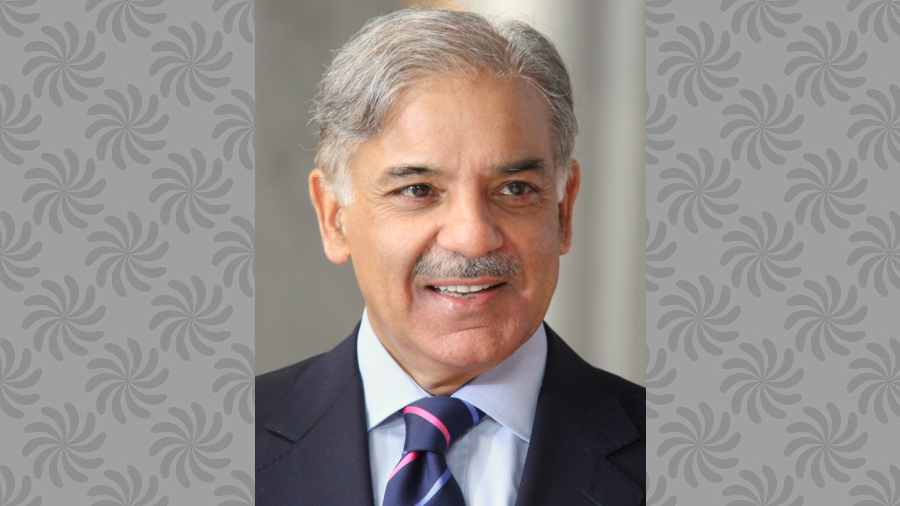As India assumes the presidency of the G20, the world counts on it to mobilise credible actions to deliver on the 2030 Development Agenda and the Paris Climate Agreement, UN Secretary-General Antonio Guterres said on Saturday.
In his message to a special India@75' event on Showcasing the India-UN Partnership in Action', the UN chief underlined that as home to the largest youth generation in history, India will be decisive in the success of the Sustainable Development Goals (SDGs).
"Looking ahead, India, home to the largest youth generation in history will be decisive in the success of the Sustainable Development Goals, and reiterating Prime Minister Modi - as you reform the world transforms, Guterres said.
The event here was organised by the Government of India and the United Nations to highlight India's partnership with the UN, its South-South Cooperation, its development journey and achievements in the 75th year of its independence.
It was held on the margins of the high-level UN General Assembly session and attended by dignitaries from the UN including President of the 77th session of UN General Assembly Csaba Korosi, UN Deputy Secretary-General Amina Mohammed, Maldives Foreign Minister Abdulla Shahid and UNDP Administrator Achim Steiner.
Mohammed, while delivering Guterres' message at the event, said that as India assumes the presidency of the G20, we count on you to mobilise credible actions to deliver on the 2030 Agenda, Addis Ababa agreement and the Paris Agreement.
Guterres said in his message that over the last 75 years India has achieved remarkable progress in equitable and sustainable development, lifting over 270 million people out of extreme poverty and rising to become the world's fifth largest economy. He said all sectors of society have been positively impacted, including health, education, food security and climate change.
Guterres said the world is fast approaching the midpoint of the time available to reach the SDGs.
Yet we must be honest that our assessment progress is in peril. Even the most fundamental goals on poverty, hunger and education are going in reverse and we can see consequences everywhere from the escalating climate chaos and humanitarian emergencies to rising inequalities and injustices, he said.
The UN chief gave a clarion call to the world to change course and added that the 2030 Agenda for development remains our compass to guide us to a more peaceful, prosperous future that leaves no one behind.
We need to act together in solidarity with greater ambition, and urgency, and we need to act in partnership across governments, civil society, the private sector and from the global to the local levels, he said.
He noted that rooted in a shared belief and multilateral solutions, the India-UN SDG partnership is a powerful example of cooperation that we can move forward.
Mohammed, in her personal remarks, said that India has inspired, by its diverse society, energised by its youthful population, its strong democracy and women in peacekeeping.
She said the huge and growing potential to transform the world, the scale and pace of growth charts a path for others to follow.
Transformations and food systems, sustainable energy, connectivity and health are going to be the key opportunities for deepening the partnership. The current crisis we have, be it the recovery from COVID or the climate crisis, or the impacts from the Ukraine war, what we have is never been more endowed and able to face those crises together, she said.
A concept note shared ahead of the event said that as a founding member of the United Nations, India strongly supports the purposes and principles of the UN.
India's deepening engagement with the United Nations is based on its steadfast commitment to multilateralism and dialogue as the key for achieving shared goals and addressing common challenges.
The India-UN Development Partnership Fund is the first-ever single-country South-South cooperation initiative at the UN.
Launched in June 2017, this USD 150 million Fund supports South-owned and South-led demand-driven sustainable development projects with a focus on LDCs, LLDCs and SIDS.
The dedicated facility is managed by the United Nations Office for South-South Cooperation (UNOSSC). In the last five years, the Fund has accumulated a portfolio of 66 projects in 51 countries.
From supporting a project to get ready a Convention Centre in Palau to host Ocean Conference, to rehabilitating hospitals in Antigua & Barbuda and Guyana, to building a school in Dominica, an Information Technology Centre of Excellence in Papua New Guinea to developing the capacity of women to stem desertification in the Kanem and Lake Chad regions, this Fund is directly impacting the lives of communities across the developing world.
An important aspect of India's leadership in climate action is converting domestic action into an international collaboration.
India is helping ensure access to affordable, reliable, sustainable and modern energy for all' through its initiatives like International Solar Alliance (ISA), which was formed at CoP21 in 2015 in Paris.
Over the years, ISA has helped ensure energy security and sustainable livelihoods by providing poor communities in developing countries access to natural, economic, human, and social capital.
ISA was accorded multilateral treaty status by the UN in December 2017, and now has over 100 members.
At CoP26 in 2021, India and the UK announced the One Sun One World One Grid initiative, the first international network of global interconnected solar power grids which will combine large-scale solar power stations, wind farms and grids with rooftop solar and community grids towards a reliable, resilient and affordable supply of clean energy.
India is also the founder member of the Coalition for Disaster Resilient Infrastructure (CDRI) which is a partnership of national governments, UN agencies and programmes that aim to promote the rapid development of resilient infrastructure to respond to the Sustainable Development Goals' imperatives of expanding universal access to basic services, enabling prosperity and decent work.












